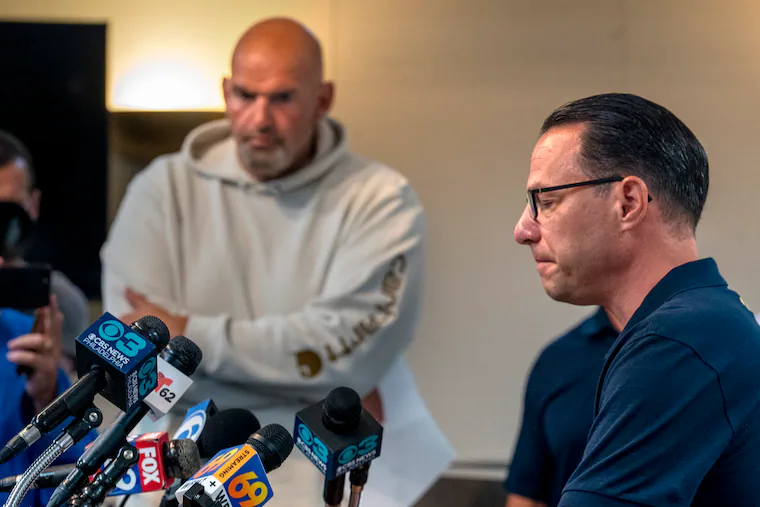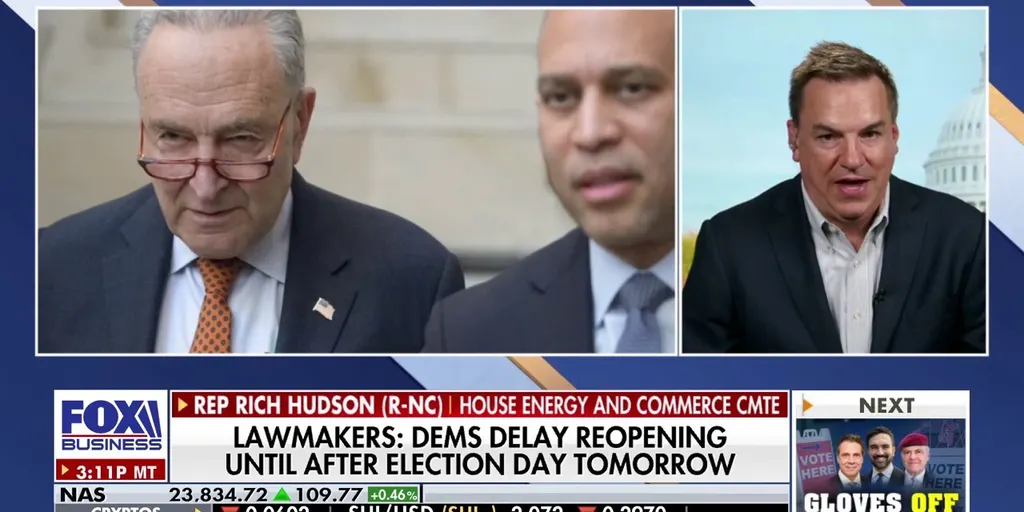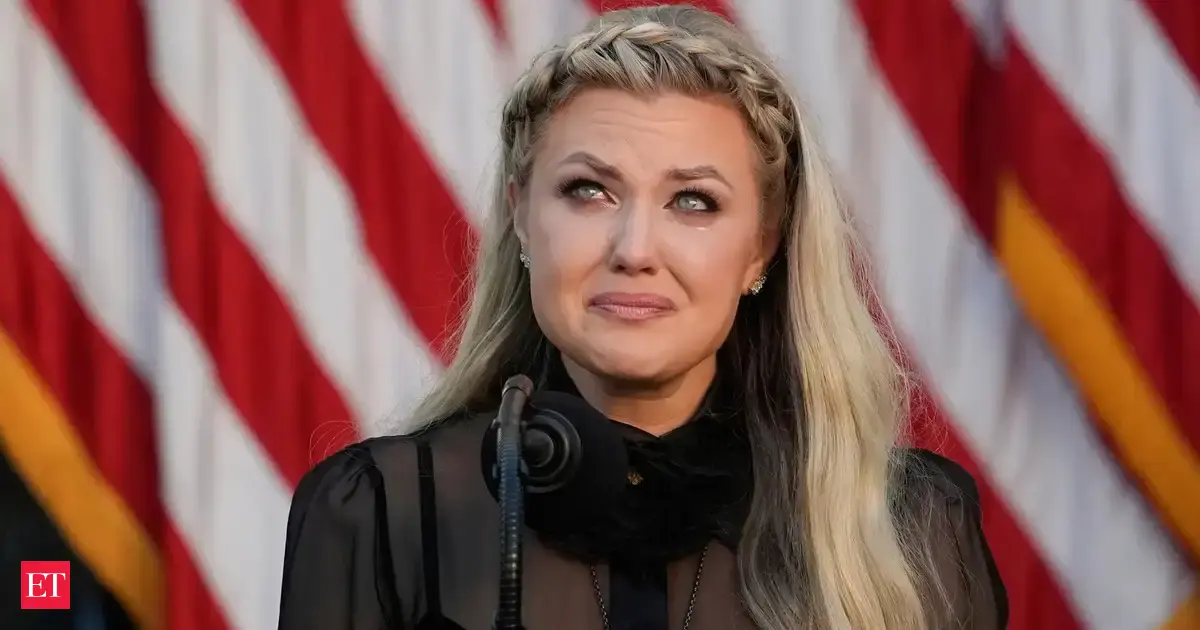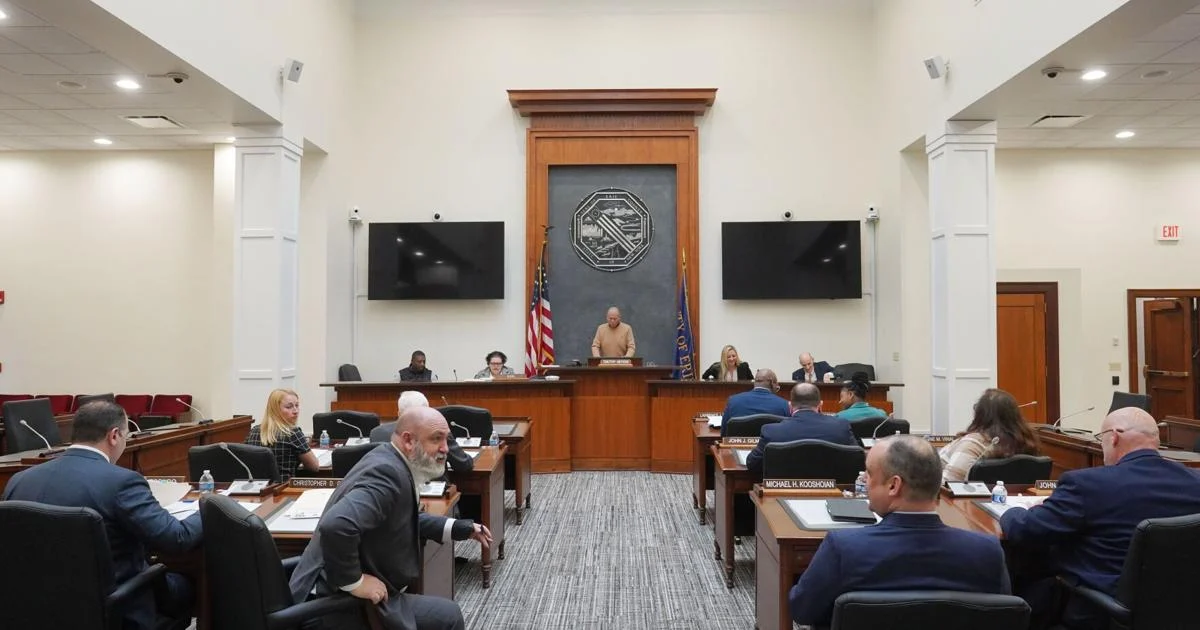Copyright The Philadelphia Inquirer

It’s no secret that Pennsylvania’s two most powerful Democrats do not get along. Sen. John Fetterman and Gov. Josh Shapiro are stylistic opposites who have butted heads over the years. Now Fetterman, in his newly released memoir Unfettered, is recounting his version of why that is. By Fetterman’s telling, it stems from their time serving together on the Board of Pardons. Fetterman, then Pennsylvania lieutenant governor and the board’s chair, was so bothered by then-Attorney General Shapiro’s unwillingness to grant a commutation to two men that Fetterman threatened in a private meeting to run against Shapiro for governor if he did not change his mind. “I told him there were two tracks — that one and the one in which he ran for governor and I ran for the Senate (which was the one I preferred),“ Fetterman said in the memoir. ”I had no interest in friction, only in what I felt was justice." Shapiro did not immediately respond to a request for comment from The Inquirer. The anecdote has been reported on before but never through Fetterman’s direct telling. Fetterman’s book, which is dedicated to anyone with depression, largely focuses on his struggles with mental health, his comeback and a career that traces his journey from mayor of tiny Braddock to becoming one of the nation’s most well-known and scrutinized senators. In the chapter about Shapiro, called “The Shapiro Affair,” Fetterman describes the not-so-secret tension that has long existed between the men. Fetterman said the disagreements between the two started when Shapiro, who was elected attorney general in 2018, joined the five-member board which determines which inmates who applied for commutations of their sentences should be released. The board, in recent years, had granted fewer and fewer commutations, something Fetterman wanted to change when he took the helm in 2019. He lists in the book several men denied clemency who he thought should have been released for good behavior, life-threatening illnesses, or in light of conflicting information about whether they’d committed the crimes. “Shapiro was far more cautious, and at a certain point, I began to think that what was influencing him was not mere caution but political ambition,” Fetterman said, recalling a meeting where Shapiro voted against 12 of 15 cases and Fetterman threw his reading glasses down, breaking them. “I believe what drove him to delay and deny applications was not the facts of a given case as much as a fear that someone whose sentence he’d commuted would go on to commit terrible violence on the outside.” The tension got bad enough that then-Gov. Tom Wolf set a meeting between the two men, according to Fetterman staffer Bobby Maggio, who is quoted in the book. “I don’t think Shapiro ever really understood how John operated, or why he is the way he is,” Maggio said. “They are both very different types of elected leaders. To be fair, John didn’t really go out of his way to form relationships. He’s not always a consensus builder.” The Hortons’ case became especially personal to Fetterman. The brothers, Lee and Dennis Horton, served 28 years in prison for a murder conviction that has been heavily criticized as both brothers have maintained their innocence. Fetterman vigorously advocated for their release from prison during his time as chair. Things came to a head in a 2020 Zoom hearing about their case when Shapiro said he was disturbed that transcripts from their original trial — which presumably determined their involvement — were missing. According to Fetterman, Shapiro then gave a “very long winded and unnecessary speech” before voting against advancing a commutation. When Shapiro was done, Fetterman let out a “f— asshole,” not realizing his microphone was still on. The moment led to Fetterman’s threat to run for governor, which was recounted in an Inquirer story. Fetterman said in the book that a member of Shapiro’s staff, Joe Radosevich, reached out to him at the time. “He wanted me to retract things I had said and to deny the rumors about the private meeting taking place,” Fetterman said. “That wasn’t going to happen..” Shapiro and the rest of the board eventually voted to commute the Hortons’ sentences in December 2020. The Hortons went on to work on Fetterman’s campaign and Fetterman brought Dennis “Freedom” Horton to his first State of the Union in February 2023. The relationship with Shapiro “never recovered,” Fetterman said. Fetterman notes in the book that Shapiro has since “become hotter than hot, one of two finalists for the vice-presidential nod in 2024, a bright star in the Democratic Party, and a front-runner for the presidential nomination in 2028.” “I sincerely wish him the best. He is a credit to the state and may one day be a credit to the country. I remember fondly the days when we were nobodies trying to climb the ladder. Even if we no longer speak.” In 2022 while running in the Democratic primary for Senate, an incident from Fetterman’s past surfaced and lingered throughout the campaign. In 2013 Fetterman, while at home with his son, said he heard what sounded like gunshots, and grabbed his legally owned shotgun to investigate. Fetterman, then mayor of Braddock, chased down a person, whose race and gender he said were unknown to him. “With every square inch of the man covered, I wouldn’t have known this person from my own mother, much less his racial identity,” Fetterman said in the memoir. “I told him to stay until the police arrived, keeping my truck between us. He told me to go f— myself. The police arrived and took the man in for questioning, and that was the end of my involvement.” The man involved, Christopher Miyares, was found to be unarmed and said he was jogging in the area, according to a 2013 police report. Miyares later pled guilty to kidnapping charges in an unrelated incident. Fetterman said he still believes he did the right thing that day. He also defended his decision not to apologize for his response, even as his opponents in the Democratic primary race, former U.S. Rep. Conor Lamb and State Rep. Malcolm Kenyatta, repeatedly suggested he should. “Apologizing would have been the easy way out, what politicians do when something is going south and they want to soften their coverage: say they made a mistake. The issue here was simple: Either you believed me or you believed the words of someone who, after the incident in question, held a woman at knifepoint and was convicted of kidnapping.” Fetterman said he was extremely bothered by the inference he saw behind the attacks: that he was racist. “Had the alleged perpetrator been white, would either Lamb or Kenyatta have accused me of vigilantism and, by implication, racism? I doubt it. But if an innocent person had gotten shot that day, Lamb and Kenyatta’s take might well have been that as the legally designated chief law enforcement officer of Braddock, I had done nothing to combat crime.” Fetterman kept his lead in the primary and went on to win by 59% of the vote. “It has always puzzled me that someone so talented could run such a dysfunctional campaign,” Fetterman said of Lamb. The former lawmakerhas been a loud critic of Fetterman’s politics over the last year and his name is currently being floated as a potential primary challenger against Fetterman if he runs for reelection in 2028. The political attacks surrounding the shotgun incident remain a sore spot for Fetterman. He recounts in the book how as media stories swirled, his alma mater, Albright College, canceled his scheduled appearance as their graduation speaker. “There is no doubt that these accusations marked the beginning of the critical depression and suicidal thoughts that would have me checking in to Walter Reed as an inpatient,” Fetterman said. Fetterman almost didn’t attend his own swearing-in ceremony as he struggled in the throes of depression. Since he’s returned, he has a far more optimistic outlook on life but remains deeply cynical about the legislative body in which he serves. “The members of each party vote like lemmings, in a monolithic bloc, regardless of whether it is good for the country,” he said. “It just isn’t possible that every Republican actually disagrees with every proposal put forth by a Democrat.” Early in his first year, the Senate implemented a dress code, the original bill for which was named SHORTS, a direct shot at Fetterman who would wear his hoodie and shorts on the floor. It hurt, Fetterman said. And he didn’t buy the argument that the nation was watching and the institution’s sanctity needed protecting. “Actually, the world watches us precisely because there is no sanctity left in the present U.S. Congress, precisely because of the continued dysfunction of the U.S. government as the country teeters on the world stage,” he said. Fetterman said he sees his job as has having three responsibilities: legislation and being in Washington when the Senate is in session, keeping up with politics in your home state, and fundraising. “I have to do better on all three,” he said. He’s faced sharp criticism for missing votes in Washington and for not having more public appearances around the state, especially in Philadelphia. He notes his disposition doesn’t naturally lend itself to the person-to-person work of being a senator. “I am not collegial, and as a senator, you need to be to get anything real done. Loners in the Senate remain exactly that—loners.” But Fetterman named Republican Sens. Katie Britt, of Alabama, and Ted Cruz, of Texas, as people who became friendly with him. He said he considers Democratic Sen. Peter Welch, of Vermont, a friend and said former Pennsylvania Sen. Bob Casey “may be the nicest man (not just politician) in Washington.” The book only deals in part with the criticisms Fetterman’s received from within his party about being too friendly with Republicans, or crossing the aisle to vote with the GOP. He says he thinks Democrats have been more brutal in their judgement of him. “I’ve drunk deeply of the venom of both the left and the right. And as a connoisseur, I can confirm that the most poisonous, the bitterest, is from the far left. The right tells me I suck and calls me names. The far left calls for my death.” He does not mention reelection in the book. His seat will be up in 2028 in an election will have high turnout with the presidential race also on the ballot. “I have three years left in the Senate,” he says at one point, describing this moment in history as pivotal. “Everything that once made America the model for freedom and democracy and a perennial dream for people around the world, has been upended,” he said. “I have much to learn. I have made mistakes. I don’t have all the answers.” Fetterman said he agreed to meet with President Donald Trump because he saw it as his responsibility as the senator of a purple state and because he thought the two might have a shared kinship. “We had both come face-to-face with death,” Fetterman said. Fetterman met with Trump in January at his Mar-a-Lago resort in Florida ahead of his second inauguration. “Trump is mercurial. Trump is unpredictable. With him, anything can happen. Whatever the political risk, meeting with him was the right thing to do for Pennsylvania.” He said Trump was charming at their meeting, which also included Patriots owner Robert Kraft. “I emerged thinking Trump could be less polarizing and more collaborative if his public persona were more like his private one.” With Trump at the helm, Fetterman said he isn’t sure what the future is for his party. “I’m not sure anyone knows what the Democratic Party is anymore. We need to get away from the progressive and liberal notion that everything the Democrats do is right and above reproach and everything the Republicans do is wrong and evil. We need to start talking to one another.”



